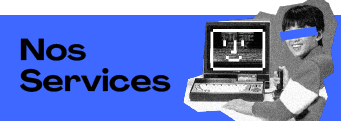Chaque vendredi, dans sa revue de presse, Maddyness vous propose une sélection d’articles qui ont retenu l’attention de la rédaction. Cette semaine, Oculus veut faire de la "réalité virtuelle augmentée" pour réinventer le lieu de travail, la startup Theranos, qui a tant fait couler d'encre, ferme finalement une partie de ses activités et licencie 340 personnes et Romain Serman vous dévoile tout de l'attitude à tenir dans la Silicon Valley.
« On ne reconnaîtra plus les banques dans 20 ans »

Ancienne de Morgan Stanley et de Deutsche Bank, Susanne Chishti a quitté la banque pour fonder Fintech Circle, un réseau de business angels investissant dans les startups réinventant les métiers de la finance. Auteur d’un livre très complet sur le secteur dont elle est une spécialiste reconnue, elle nous livre ses réflexions lors de son passage à la conférence Bordeaux Fintech.
Source : La Tribune
Oculus veut faire de la "réalité virtuelle augmentée" pour réinventer le lieu de travail

Alors qu'on aurait pu penser qu'Oculus se cantonnait à la réalité virtuelle, laissant à d'autres le marché de la réalité augmentée, le chercheur en chef de l'entreprise a révélé qu'il n'en est rien. Au contraire, il espère numériser le monde réel (et les gens qui s'y trouvent) pour créer une forme de réalité mixte bien plus aboutie que ce qui se fait actuellement. Une vision à 5 ans dont l'ambition laisse pantois.
Source : L'Usine Digitale
Theranos Is Closing its Labs and Wellness Centers

Theranos is making some big changes going forward, company chief Elizabeth Holmes has revealed in an open letter. While the embattled blood-testing firm isn't closing shop completely, it will shut down its clinical labs and Wellness Centers, as well as let 340 out of its 790 employees go. The layoffs will affect people who've been with the company for years, working for its establishments in Arizona, California and Pennsylvania. Going forward, Theranos will focus on the 95-pound device it debuted in August called "miniLab," which she said can detect diseases, including Zika, with a drop of your blood.
Source : Entrepreneur.com
Silicon Valley Etiquette

I’ve been living and working in Silicon Valley for almost 7 years now. And I, as a Frenchman, made tons of mistakes. I even dressed up for my very first meeting at Google, Mountain View, Ca. Really. I wore a tie. Nobody can beat that. It took the Googlers a full minute to realize that I was not a limo driver (if you want to avoid this kind of issue, click here). I learned there is an Etiquette in Silicon Valley. Actually, there is an Etiquettewhen you do business. Anywhere. Period.
Source : Medium @romainserman
Accelerating Innovation with Leadership
As the U.S. presidential candidates lay out competing visions for the country, I have been thinking about a topic they have not yet discussed in detail: what political leadership can do to accelerate innovation. Innovation is the reason our lives have improved over the last century. From electricity and cars to medicine and planes, innovation has made the world better. Today, we are far more productive because of the IT revolution. The most successful economies are driven by innovative industries that evolve to meet the needs of a changing world. From the advances that put a computer on every desk to the discoveries that led to lifesaving vaccines, major innovations are the result of both government investments in basic research and the private-sector creativity and investments that turn them into transformative products.
Source : Gatesnotes.com






